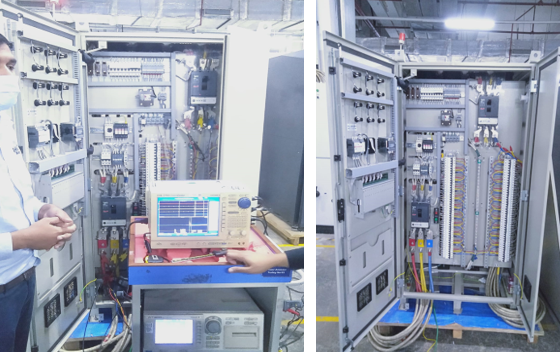Quality Assurance: From theory to implementation
AdaniConneX Data Center Business: Quality commitment
In this hyperconnected, technologically-advanced world, every new exchange of even the tiniest piece of information results in huge datasets being produced. The abundance of data has made data an ‘inevitable’ resource to be captured, stored, and processed to enable better, more informed decision-making. This massive need for data management has prompted the establishment of data centers throughout India.
A data center's distinct feature is that it must operate in a fail-safe mode 24 hours a day, seven days a week, 365 days a year (with minimal downtime) while maintaining top-notch quality. AdaniConneX’s Chennai 1 data center will set a precedent for quality management guaranteeing the delivery of desirable and credible data center services without compromising on the quality.
AdaniConneX has its own dedicated quality team on site, which is actively involved in monitoring and controlling issues, prompting confidence and meeting goals of all the stakeholders, from the contractors to the clients. AdaniConneX’s in-house quality team deploys quality inputs at every stage from the inception of the project, ranging from design, procurement, vendor selection and manufacturing of products to site construction activities.
The quality framework has been developed and implemented for various noteworthy activities like vendor performance evaluation during construction. In addition, quality initiatives like workers' skill assessment, orientation towards ‘First time Right Work’, training, pep talks, and subject awareness are conducted at the site regularly.
Some of the key initiatives for quality maintenance introduced by the data center businesses are:
First-time-right: At every stage of the project life cycle, the maker and the checker drive First-Time-Right quality through pre-defined inspection checks for the preparatory, in-process and finishing phases. Associate checks like stage-passing, sequence, etc. are also carried out – and these are critical for interdependent activities like civil, structural, mechanical, electrical, etc. to avoid mismatch and unnecessary rework.
Mock-up: Mandatory mock-up of the site activities based on the specifications and drawings is the best practice that we follow which tests and ensures all the project requirements are met before execution of the entire activity.
Skill assessment: To build a skillset, we have designed an outcome-driven implementation framework through national skill development partners. This framework assesses and acknowledges skills and knowledge gained through informal field learning, which necessitates continuous up-skilling of project workmanship, supervision, and productivity.
Training: Employees undergo trade-specific induction before starting actual work, which establishes the quality of workmanship from the beginning. Daily Toolbox / pep talks and trade-specific On-Job-Trainings (OJT) are held regularly to maintain consistency in the quality of workmanship.
Product assurance: Our standard quality plan and commission scripts help the contractors, and their vendors/manufacturers understand the project-specific requirements and satisfy stage-wise material/equipment criteria.
Factory acceptance test : PDU -

Measuring tools: An on-site dedicated quality control laboratory with trained and technical staff is set up to ensure product compliance. Advanced tools and applications are used by AdaniConneX team for trade-specific factory and site acceptance inspections and tests. Tools need to meet all applicable standard criteria, including calibration, and certification by an authorised body.
Knowledge sharing: ‘Knowledge is Power’, a core value of AdaniConneX, is instilled through initiatives like knowledge sharing sessions with internal team members and organizing external training by industry and subject matter experts. This aids everyone, especially the new joiners, in gaining a technical and effective understanding of the subject.